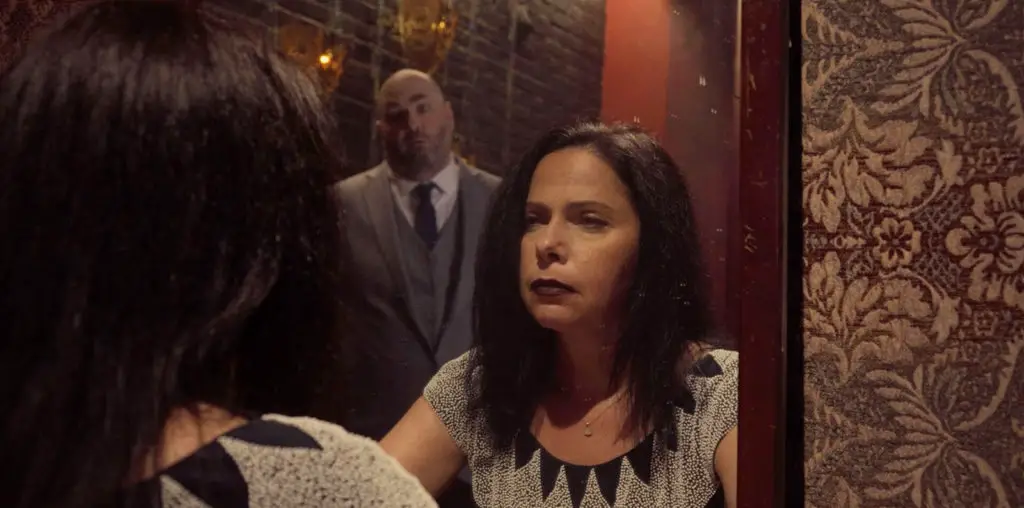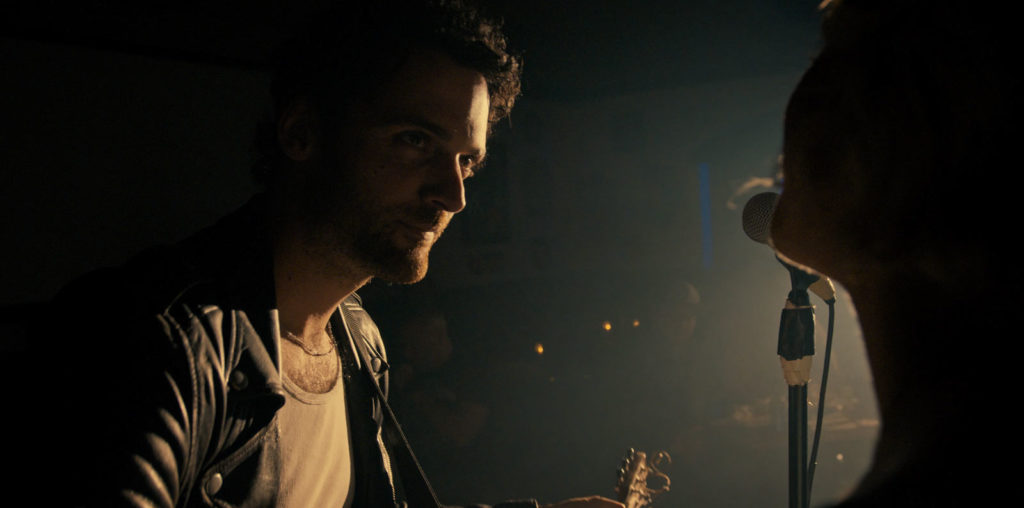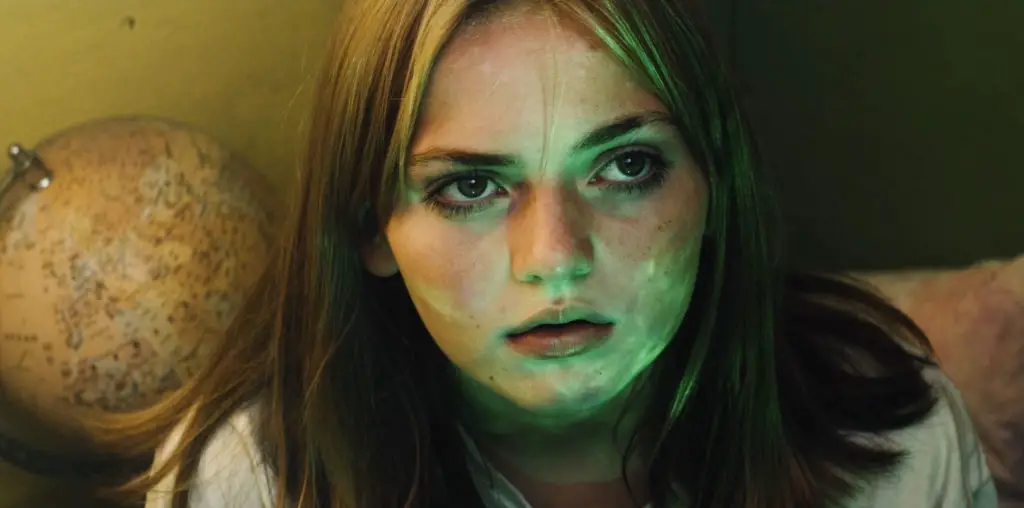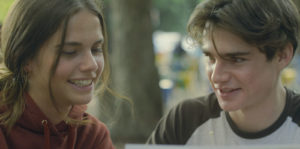
Get ready to be bathed with some potent vibrations from the captivating film debut drama Tableau by editor/writer/director Stuart Howes. Nicole (Sofia Smith) is about to start her senior year of college at Chapel Hill, where she is majoring in photography. She inexplicably turned down a summer internship with her professor, Joy (Kelly Durfey), so that she could spend time in town with her family. Nicole even bows out of a fun trip with her college buddies, much to the chagrin of cute boy Alex (Cade Goss), who has a sweet on her.
At home, she dotes on her little sister Lou (Katie Bezilla), who suffers from an array of serious health issues. They both speak fluent French with the father, Guy (Dimi Bissig), who met their mother, Michelle (Amy Davis), when she was in Europe. One evening, Michelle and Guy ask Nicole to sit down as they have something they need to discuss with her. Michelle proceeds to lay on her something very heavy about the family, so heavy that Nicole is asked to keep it from Lou, as she isn’t old enough yet.
After the talk, Nicole starts to distance herself from her parents, eventually going back to campus for summer classes with Lou in tow for some sister time. As the school year commences, she starts spending a lot less time at home. Nicole is beset with offers from Joy of jobs and graduate school in Paris. She also starts to hang out with Alex. But she is plagued by an overwhelming hesitancy, as her life seems to be splitting into all sorts of directions at once.
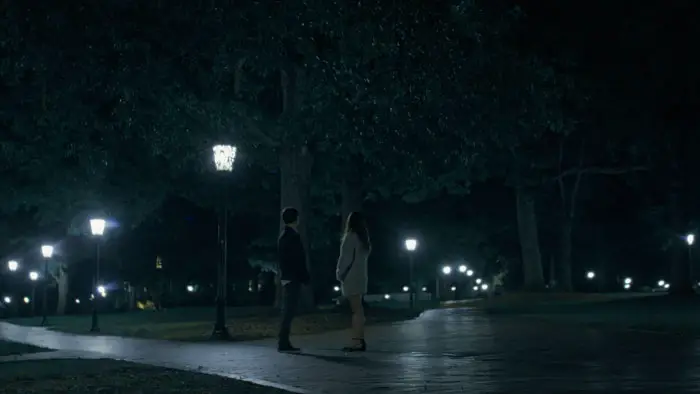
“Michelle proceeds to lay on her something very heavy about the family…”
This movie has the impact of a superb creeper weed in that you at first don’t notice anything out of the ordinary, and then ten minutes later, your forehead is a smoldering crater. The evil mousetrap of a story that Howes and Kevin Carlock conceived for Howe’s screenplay acts in exactly this fashion. The first ten minutes, while pleasant enough, had me wondering why I should care at all about this fairly privileged protagonist’s situation. Then the trap snapped, and I was glued to the screen for the rest of the film. The plot turn didn’t just pique my curiosity. It had me living inside the picture while hardwired to see what happened next. It’s a structural strategy that is very simple and tremendously effective.
There is even this scene prior to the big reveal, where Bissig and Davis do the traditional dancing in the kitchen while their kids roll their eyes. That section is then turned in on itself when the audience finds out what the secret is, turning what seemed like a cliche into a brilliantly bittersweet maneuver. The secret is only circled back to once more in the story, but its presence hangs over everything like a haunted cloud. While keeping things simple, Howes achieves a higher complexity than most other dramas, with irrational emotional responses that ring true. This makes Tableau hit higher marks than the sum of its parts, quite an achievement for a filmmaker’s first time out.
The crisp cinematography by Rudy Kovasckitz is so nice and neat you could cast it in chrome. There are even highly composed moments where the frame resembles the art photography Nicole produces. Smith is an enigmatic wonder, completely nailing Nicole being lost in her emotional maze. You can see her stifling one response after another in a symphony of repression. Davis does a wonderful job in an equally challenging role, personifying the attitude of wanting to put grave matters behind them. These actresses’ interplay onscreen as mother and daughter is so harshly genuine it stabs like needles. It is amazing the web of frustration that is weaved around the audience by Smith’s reactions to Davis as well as the reactions from Davis to Smith. This is the stuff real drama is made of, indie style. Tableau resonates higher than most feature debuts. If Howes is already working at this level, imagine what awaits us in his future work.
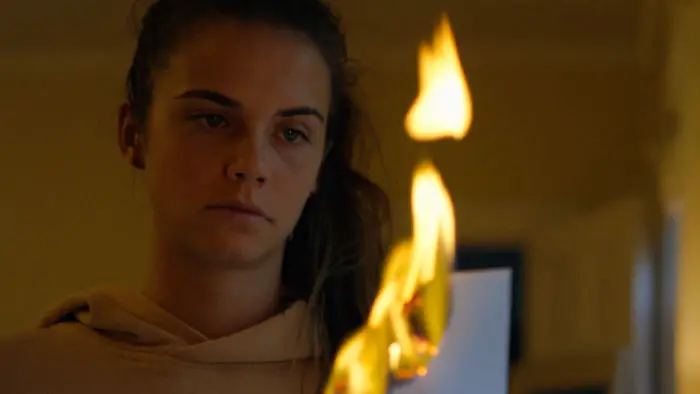
"…very simple and tremendously effective..."
